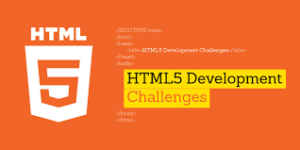
It is important that you simply check on your children as many of the intense complications are noticed in them during the second wave of Covid-19. In case there’s nobody else to require care of the kid, the mother should wear protective gear, including a double mask, face shield, etc. She should keep washing her hands regularly. it’s important to sanitize the environment at an everyday interval.
The second wave of Covid-19 has affected a greater number of kids. Why?
If we glance at its prevalence, Covid-19 has affected both children and adults alike during the second wave. In line with our latest national serosurvey also, 25 percent of youngsters surveyed were found to be laid low with Covid-19. Even children under 10 years were also found to be as infected as compared to other age groups. As per our national data on the disease, almost three to four percent of kids were symptomatic during the first wave of Covid-19 in comparison to the second wave. However, since the whole number of cases has gone up, the amount of youngsters affected is additionally more this point.
Has the intensity of the disease among children increased during the second wave?
No. A majority of kids remained asymptomatic or developed mild symptoms. Most youngsters below 10 years showed mild symptoms like cough, runny nose, mild fever, diarrhea among others. and that they recovered faster. Children who are laid low with any congenital or chronic illness like cardiovascular disease, diabetes, cancers, asthma have a better risk of developing severe disease. Children with compromised immune systems are at risk of catching Covid-19 infection.
But the oldsters must watch them closely as many of the intense complications in children occur in or after the second week of acquiring the infection. It’s rare but some children develop MIS or Multisystem Inflammatory Syndrome.
Is the treatment for youngsters different from that for adults?
The management of the disease is more or less identical for both children similarly as adults. We manage mild cases of Covid-19 with normal paracetamol. If a toddler has diarrhea, we prescribe oral rehydration fluid and lots of fluid. In moderate to grievous cases also, the treatment is the same as that for adults.
Also, Read |What the new Covid-19 variants mean for folks and children
In case, a toddler suffers from respiratory distress, or increased rate, severe cough, hypoxia, uncontrolled fever, or other unusual symptoms like rash, excessive sleepiness, parents should immediately consult their doctors as he or she may require hospitalization. Most multi-system inflammatory syndrome (MIS) cases are treatable if detected and treated as soon as possible.
Like adults, some children are suffering from Long Covid. In this, a baby may develop a replacement disease like diabetes, hypertension even after 3-6 months of recovery.
What precautions should a caregiver want to protect oneself from catching the infection while nursing a baby full of Covid-19?
The caregiver should wear double masks, face shields, gloves while providing care to the kid. Besides, it’s important that the caregiver, too, isolate himself/herself from the remainder of the family. Also, everyone within the family should get tested for Covid-19.
And what if a brand new mother is Covid positive?
In such a situation, the other member of the family who isn’t Covid-positive should be sure of the infant. we can reduce the physical interaction with the mother if she extracts her breast milk and also the other caregiver feeds the kid.






